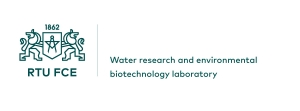Microalgae for wastewater treatment
The use of microalgae biomass is recognized as a cost-effective and sustainable alternative to wastewater treatment. Microalgae biomass is perceived as a raw material for bioenergy production, nutrition, and perfume products as well as for high-value substance extraction. Thus, with successful downstream processing, algal biomass not only can provide a low-cost wastewater treatment but is also potentially profitable wastewater management approach. However, limitations such as biomass separation from water and the process efficiency in cold climate hamper this wastewater treatment method from full-scale use.
The Water Research Laboratory is working to improve microalgae-based wastewater treatment performance. Our experiments show that altering the external phosphorus availability (from no to phosphorus rich conditions), nutrient uptake form wastewater remains efficient at both optimal and low temperatures (approx. 22 and 12 °C, respectively). This is determined by the algal cell ability to take up more phosphorus than needed for its metabolism and store it for later consumption, also known as the luxury phosphorus uptake. Through a series of lab-scale batch and continuous flow experiments, using a photobioreactor with automated process control, we aim to develop an approach for controlled luxury phosphorus uptake to optimize the microalgae-based wastewater treatment. This mechanism can be used to enhance the nutrient uptake at a lower temperature or to reduce the wastewater retention time in microalgae reactors, thus reducing their size.
Luxury phosphorus uptake was demonstrated in one master thesis, and the study is expanded in one doctoral thesis, developed in the Water Research Laboratory.
Publications:
Lavrinovičs, A., Juhna, T. A Review on Challenges and Limitations for Algae-Based Wastewater Treatment. Construction Science, 2017, 21, 17.-25.lpp. ISSN 1407-7329. e-ISSN 2255-8551. Available: doi:10.2478/cons-2017-0003
Lavrinovičs, A., Juhna, T., 2017. Use of artificial aquatic food-web for post-treatment of domestic wastewater in cold climate: A review. Journal of Water Security, Vol. 3, pp. 1-8.


